American Federation of Teachers (AFT) Sells Children to Globalists
The country’s second-largest teachers union, the American Federation of Teachers (AFT), put a lot of effort into lobbying to keep schools closed. Aside from apparent health and safety concerns, the union’s push for indefinite remote learning has more to it than meets the eye.
Leaked email correspondence between the AFT and CDC on May 1st, 2021, was made public by the Americans for Public Trust (APT) (CDC). Through Freedom of Information Act (FOIA) requests, emails from the bureaucracy of this teachers’ union were obtained that showed how they were lobbying for the CDC to change its school reopening guidelines.’
By petitioning the CDC to include “language,” recommending that schools continue to provide “telework” and virtual teaching opportunities as alternatives to in-school learning. There is a “variant closing metric” in place to deny in-person instruction “at any level of community [COVID] transmission,” which the AFT requested from the Center for Disease Control.
“Telework” and “virtual teaching” were prioritized over COVID lockdown measures in the AFT’s lobbying efforts, which effectively pressured the Centers for Disease Control and Prevention into relegating public schools to “distance learning,” which is outsourced to private educational technology companies.

Source: Americans for Public Trust “CDC Responsive Records”
The American Federation of Teachers (AFT) has been working with the Centers for Disease Control and Prevention (CDC) to increase COVID restrictions that keep public education dependent on Big Tech company privatization. During a lockdown, these companies have made record profits by selling educational technology products to schools.
The AFT and the National Education Association co-authored Learning Beyond COVID-19: A Vision for Thriving in Public Education, which calls for increased access to “devices needed for online learning” as well as increased access to “virtual” tutoring just after their email exchanges with the CDC.
Why would the American Federation of Teachers go against “following the science” when it comes to school health and safety?
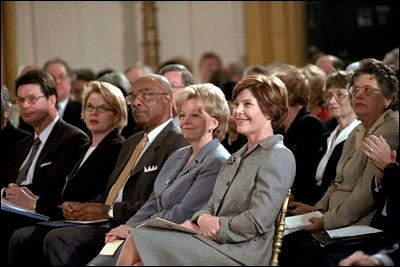
AFT defying CDC experts by refusing to open schools in favor of COVID restrictions that open the door to “remote” contracts for ed-tech companies that privatize public education through “e-learning” contracts is a slap in the face of the ed-tech industry.
As a matter of fact, “[c]hildren and young people remain at low risk of COVID-19 mortality,” according to data published in the Lancet. When there is increasing evidence that in-person schoolhouse learning does not increase COVID-19 transmission rates in the community, what is the point of it all?
When you consider the rise in adolescent suicides due to social isolation caused by school lockdowns, these questions become even more challenging to answer.
In addition, the isolation of students from their peers during school lockdowns is affecting their cognitive and emotional development, which is critical in the early stages of learning the fundamentals of how to communicate by reading facial expressions, body language, and other social cues.
There is a wealth of data showing that students learn more effectively in a classroom setting than they do in a virtual “distance learning” environment via a computer screen.
There are numerous reasons why students return to brick-and-mortar classrooms, so why did the AFT not “follow the science” and open schools as CDC recommends? What prompted AFT bureaucrats to petition the CDC to tighten its COVID mitigation protocols for schools supporting corporate-technocratic distance learning?
Indeed, the AFT cites health and safety concerns as the driving force behind its redoubling of COVID mitigation policies, which effectively necessitate remote online schooling. The AFT, however, has a long history of selling out its members to the global ed-tech industrial complex by negotiating deals with Big Tech companies like IBM and Microsoft, corporate philanthropies like the Rockefeller Foundation, and world governance institutions such as the Trilateral Commission and the United Nations Educational, Scientific, and Cultural Organization (UNESCO).
As a result of the AFT’s past dealings with corporations, globalists, and technocrats, it appears that the union may have ulterior motives to stall the full return to in-person learning to pressure schools into contracting for IBM and Microsoft, which are driving “Reimagine Education” campaigns with UNESCO to spur the World Economic Forum’s “Great Reset” for the “Fourth Industrial Revolution.”
The AFT has effectively lobbied for schools to be tied to multinational ed-tech cartels that aim to data-mine students’ psychometrics for workforce “competence” in the global “Social Credit” economy of the “surveillance capitalist” Fourth Industrial Revolution by pressing the CDC to drag out COVID constraints that relegate education systems to “distance” and “hybrid,” or “blended,” combinations of virtual-online instruction.
“Financial Inclusion Accelerates with a New Approach to Credit Scoring,” according to the World Economic Forum (weforum.org)
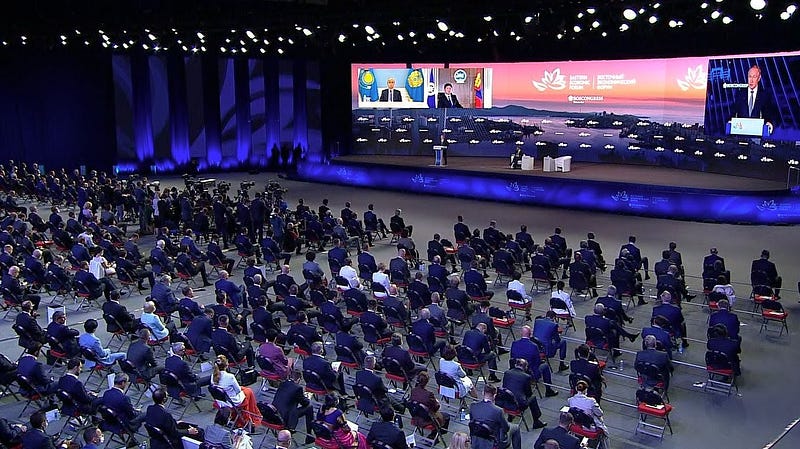
Behaviorist Educational Technology and the AFT-Rockefeller Alliance: A Trilateralistic Globalization Initiative
From John Dewey’s funding of educational psychology to Albert Shanker’s ties to David Rockefeller’s Trilateral Commission, the AFT has become part of the corporate-globalist web of Rockefeller philanthropies and think tanks.
Behavioral “programmed instruction” delivered by computerized “teaching machines” is a common theme among the AFT-Rockefeller connections. This method of psychological conditioning is used in workforce schooling.
As an undergraduate, John Dewey was the first student to conduct laboratory studies under G. Stanley Hall, a founding father of American psychology, and was the first American to study at the seminal psychology laboratory in Leipzig in Germany under Wilhelm Wundt.
During his tenure as the University of Chicago’s philosophy chair, Dewey developed his theory of functionalism, which expanded stimulus-response psychology with the help of Rockefeller money that began flowing in in 1892, the year Dewey was hired. He taught John B. Watson, who would go on to found the field of behavioral psychology.
As a professor at Columbia University, Dewey’s functionalist ed-psych became the pedagogical foundation of the Lincoln School, which was founded in 1917 with funding from the Rockefeller General Education Board the same year that Dewey helped found the AFT.
E. L. Thorndike applied behavioral psychology to educational pedagogy at Columbia University Teacher’s College, where the Lincoln School was founded, including applications for early models of programmed instruction through mechanized books hypothesized in his Education: A First Book. John Dewey, Columbia University, edu.
At least twenty-five years after John Dewey, AFT founding member, received Rockefeller money, his functionalist educational psychology shaped the progression of stimulus-response conditioning into automated teaching machines that have evolved into modern computerized educational technology, such as the cognitive-behavioral adaptive-learning courseware that AFT endorses as it “reimagines” schooling for the Fourth Industrial Revolution.

Albert Shanker, the AFT’s president from 1974 to 1997, was a Rockefeller pawn in the American Federation of Teachers, which he held for twenty-three years. As AFT president, Shanker attended meetings hosted by David Rockefeller’s Trilateral Commission, a globalist “roundtable” where oligarchs from North America, Europe, and Asia meet to plan a planned global economy.
According to AFT President Shanker’s 1985 “Address” to Sanoma State University, “there were bankers and politicians, and former ambassadors and secretaries of state at a meeting of the American Branch of the Trilateral Commission.
Among those in attendance were Henry Kissinger and others. On the topic of critical thinking and education reform, Shanker also spoke about meeting with “the head of IBM” as he predicted that the future of “international competition” would be based on “who is going to develop the best [computer] chip. When it comes to technology and information, we live in a world where the knowledge industry is the source.” “If we gave teachers in a sense, no choice,” Trilateralist Shanker said of audio-visual educational technology, “some of this will be done technologically.”
Shanker’s leadership of the AFT aligned it with Rockefeller’s globalist Trilateral Commission’s corporate-technocratic vision to cultivate reforms in schools that would produce high-tech job skills for “competition” in an “international” economy built on the computerized “knowledge industry” of the Fourth Industrial Revolution, as this speech shows.
On April 27th, 1988, AFT President Shanker reaffirmed his commitment to high-tech workforce schooling reforms that train students to “compete in the world economy” built by Rockefeller’s Trilateralist cronies, such as IBM, in a WAMU-FM radio interview. It’s very much like what an automobile company does when it wants to create a new automobile,” Shanker said when asked how he would improve school systems.
There will be “teams” of teachers using technology to lead this new manufacturing model of education, says Shanker. “[w]ell, some of them might learn by looking at videotapes and seeing things in a more pictorial form,” he said in response to another question about how he would ensure that all students could learn in his “upgraded” schools.
Some of them may be able to make money from computer simulation games.” Trilateralist Shanker advocated for “gamified” workforce training through “computer simulation games” and other educational technologies, which are now being implemented by IBM’s Cognitive Ability Assessments, which track cognitive-behavioral algorithms to test for job “competence” using artificial intelligence (AI).
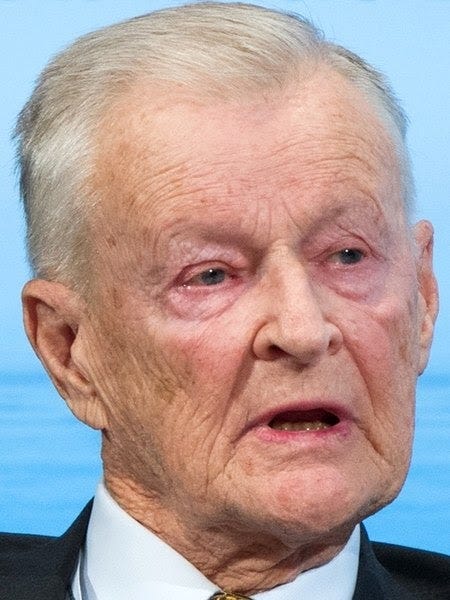
For more information on the Trilateral Commission, please see:
President Jimmy Carter’s National Security Advisor Zbigniew Brzezinski, who co-founded the Trilateral Commission with David Rockefeller, illustrated Shanker’s alignment with the Trilateralist plans for a global ed-tech schooling system in 1970 futurist tome,
Between Two Ages: America’s Role in the Technetronic Era. Schooling will be transformed into a hi-tech system of “home-based education through television consoles and other electronic devices” in the Fourth Industrial Revolution, according to Brzezinski in Between Two Ages. On the other hand, Brzezinski laid the groundwork for Shanker’s adoption of a computerized ed-tech system at American Trilateral meetings, where he collaborated with his corporatist comrades. Brzezinski’s Between Two Ages: America’s Role in the Technetronic Age (New York: Viking Press, 1970)
Shanker attended meetings with the Rockefeller-Brzezinski Trilateral Commission to practice “diplomacy,” but the AFT’s National Executive Board tabled a 1984 resolution that would have “opposed such programs a.” The AFT’s National Executive Board effectively sided with the corporate-technocratic interests of Shanker’s Rockefeller-Trilateral constituents by rejecting this Arizona Federation of Teachers’ resolution to prohibit schools from using ed-psych conditioning, including computer-programmed instruction.
The AFT’s ties to the Rockefeller family are still strong nearly forty years later. AFT and NEA, for example, partnered with WETA-TV in Washington, D.C., whose president is Sharon Percy Rockefeller, the wife of former U.S. Senator Jay Rockefeller, David Rockefeller’s nephew, in 2015 to provide educational programming for English language learners. Marla Ucelli-Kashyap, the AFT’s Assistant to the President for Educational Issues, previously worked for the Rockefeller Foundation as an Associate Director of Working Communities.
Contracts managing learning outcomes contracts Thanks to those algorithms, students who do not have access to the technology required for distance learning face a “digital divide” that must be bridged if they are to benefit from distance learning, according to a 2020 AFT news article titled “AFT International Connects on COVID-19,” which was written by the former Rockefeller director.
Leaked AFT-CDC email exchanges reveal that Ucelli-Kashyap was also a part of an effort by the American Federation of Teachers to reinstate school lockdown protocols and distance-learning accommodations that perpetuate corporate ed-tech takeover of public education.

As a result, the Rockefeller Foundation is launching its “Great Transition” campaign, which mirrors the Great Reset of the World Economic Forum. The Rockefeller Foundation’s Great Transition is aiming to accelerate the “digital revolution” that will expand virtual “distance learning opportunities” by “pushing the boundaries of the remote learning shift” through “[a] common platform for planning, testing solutions, and peer-to-peer learning” linked to “digital identities.
Public-private partnerships are being urged to expand online “distance learning” with virtual “platforms” designed to test and track students ‘learning analytics’ so that psychological profiles can be data-mined to “personalize” education based on Social Credit metrics derived from students’ “digital identities,” as part of the Rockefeller Great Transition.
According to The Rockefeller Foundation: “Let the Great Transition Begin.”
Finally, the AFT’s capitulation to IBM-driven educational technology has been driven by Rockefeller agendas that have been in place for more than a century. This means that the AFT has been influenced by the Rockefeller Foundation’s policies for more than a century.
Public-Private Virtual Education for the Fourth Industrial Revolution: “Cradle-to-Career” Schooling Incorporated: K12 Inc.,
AFT President Albert Shanker, who supports public-private charter school reforms through partnerships with private educational corporations subsidized by tax dollars, set a legal precedent for private ed-tech companies to profit from government coffers funneled through contracts with public schools.
Indeed, public-private charter school markets have created the first virtual edu-corps, such as K12 Inc., that deliver learning services exclusively via remote online lessons through digital classrooms that incorporate adaptive-learning courseware, the modern version of Skinner-box teaching machines, to condition students for workforce competence in a globally planned economy.
For the first time in American history, AFT President Shanker advocated for a new type of schooling to prepare students for high-tech jobs in a global economy: charter schools. Although charter schools are unpopular among public educators, especially unionized teachers, the AFT has continued Shanker’s charter school vision.
According to an article titled “Restoring Shanker’s Vision for Charter Schools,” published in the Winter 2014 edition of the AFT journal American Educator under the presidency of Randi Weingarten, “the relevant question today is no longer whether charter schools are good or bad as a group. What we want to know is, “Can charter schools be taken in a more productive direction?”
Photo charter UFT Charter School in New York City, founded by Weingarten to dispel the myth that “union contracts are an impediment to success” in charter schools, was overseen by Weingarten before she was appointed AFT President. She was president of the United Federation of Teachers union at the time.
It can be traced back to Shanker’s alliance with the Trilateral Commission, co-founded by Zbigniew Brzezinski. Brzezinski, an advisor to President Obama, championed the expansion of public-private charter schools, including virtual charter schools, that carry out “cradle-to-career” workforce training. Foreseeing a public-private schooling system where businesses would “scientifically” manage workforce education programs in Between Two Ages: America’s Role in the Technetronic Era, Trilateral boss Brzezinski wrote:
Because of both psychological and professional reasons, businesses are becoming more involved in education.” Higher educational training will create a more diverse national community, while business involvement in education may faster adaptation of new techniques and scientific knowledge to the educational process. In the United States, businesses and the government have already implemented extensive “management ‘retooling’ and retraining” programs.”
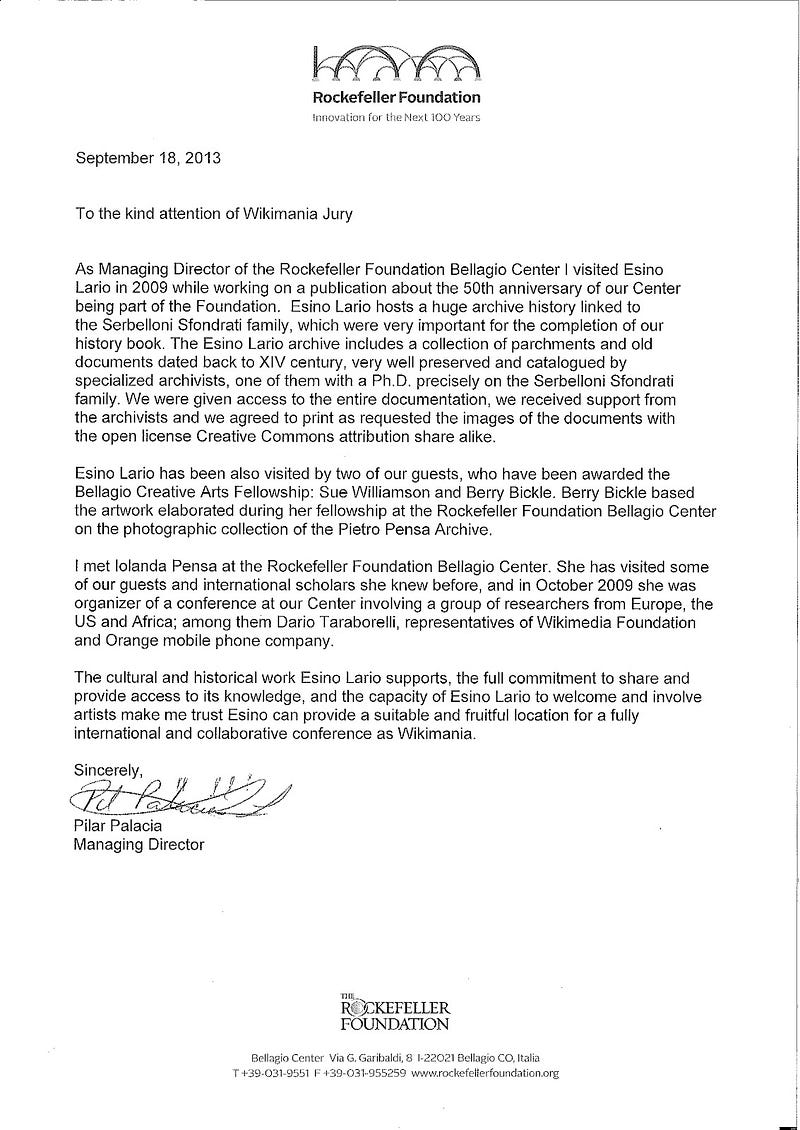
“Stakeholder capitalism” in education has been spearheaded by a public-private network of virtual charter school corporations, such as K12 Inc., which contract with ed-tech companies, such as Dreambox, that “scientifically” manage learning outcomes by deploying courseware products that psychologically condition the student body with AI algorithms. Students are being taught to be “competent” workers in a technocratically planned global economy thanks to those algorithms.
“What Is Adaptive Learning?” Dreambox, Learning
The AFT endorsed Brzezinski’s “cradle-to-career” workforce training system in his public-private business model of protocharter schooling. It was with great joy that AFT President Weingarten hailed Secretary Duncan’s approval of the US Department of Education’s 2010 grants for “cradle-to-career services to improve educational outcomes” in “Promise Neighborhoods” as “a huge step forward.” Trilateral Commission globalists like Zbigniew Brzezinski are also a part of the American Federation of Teachers’ support for these cradle-to-career charter programs.
His pre-charter business model of public-private schooling would conform to the “technetronic” industrial revolution by restructuring education, Brzezinski argues in Between the Two Ages.
“It could be more generally pursued within a work-study framework, and it should be supplemented by periodic additional training throughout most of one’s active life.”… It is possible to have regular and formalized retraining throughout the majority of one’s professional career” (266–267).
Trilateralist Brzezinski developed this model of cradle-to-career charter schooling by combining “work-study frameworks” with an educational business network. This model gave rise to virtual charter edu-corporations and provided the public-private foundation for multinational education technology firms to globalize digital psychoeducational conditioning for workforce competence in a “stakeholder capitalist” Fourth Industrial Revolution.
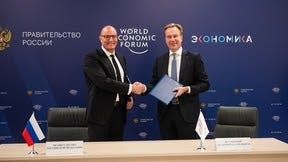
“Learning Partnerships: Strengthening American Jobs in the Global Economy” was produced by the Albert Shanker Institute and the New Economic Information Service as part of a “Task Force” supporting the AFT-Trilateral promotion of cradle-to-career charter schooling. “[g]lobal economic competition” necessitates “Learning Partnerships” that develop workforce “skills” and “capabilities” in the industry of “information technology” because “[t]echnological change is also sweeping away millions of relatively routine jobs, while creating new demands for new skills and capabilities.”
National Security needs for workforce training in software code development are also mentioned by the Task Force, with “Bill Neugent, chief engineer for cyber security at MITRE, a non-profit research and engineering corporation,” saying, “It’s an issue that worries the big vendors, companies such as Microsoft, IBM and Sun.’”
To summarize, the AFT has supported the Trilateralist mission to technocratically plan the world economy through public-private workforce training partnerships between multinational technology corporations and national government agencies since the conception of charter schools.
Of the AFT-Trilateral push for charter school reforms, the online distance learning industry has opened the doors for international ed-tech companies to privatize public school systems. President Ronald Reagan’s Secretary of Education,
William Bennett, who oversaw Project BEST, undertook this technocratic privatization strategy, which was initially sparked by virtual charter school corporations like K12 Inc. UNESCO Study 11 and Reagan’s Task Force on Private Sector Initiatives worked together with Project BEST to establish public-private “school choice” partnerships that contract with globalist ed-tech corporations to deploy computerized e-learning technologies that psycho-behaviorally condition students for workforce competence in the globally planned Social Economy.
Data-tracking “social credit” for the 4th generation: Pay-for-success community impact investments
As a result of the AFT’s role in promoting corporate “school choice,” public-private ed-tech partnerships through virtual charter schools were established. “Community school” partnerships between the public and private sectors have also opened the door to “wraparounds” services like job placement “pathways,” healthcare treatments, and crime-prevention programs for at-risk students that use educational technology to mine students. Rockefeller Foundation is funding social Credit systems of digital cognitive, behavioral, and socio-emotional psychometrics. Social Credit’s “pay for success” impact finance can only be implemented through public-private community schools, the opposite of corporate charter schools.
“Paid Success and the Human Value Chain,” see Wrench in the Gears by Alison McDowell for more information.
For-profit corporations and non-profit foundations, and global governance institutions such as IBM, the Rockefeller Foundation, and UNESCO all have connections to the AFT, and community schools provide pay-for-success pipelines for “social impact investments” from these organizations.
The Trilateral Commission has endorsed “[g]lobal impact investments” that finance community pipeline services based on “predictive analytics” extrapolated from students’ cognitive, behavioral, and socioemotional learning metrics, which can be aggregated into Social Credit Scores that are recalculated based on the student outcomes resulting from such pay-for-success programs.”
When students’ access to jobs, health care, and other social programs is based on their “Social Scores,” which are calculated by evaluating how well they perform in their “community-based” pay-for success assignments, the corporate oligarchs can socially engineer students’ thoughts and actions.
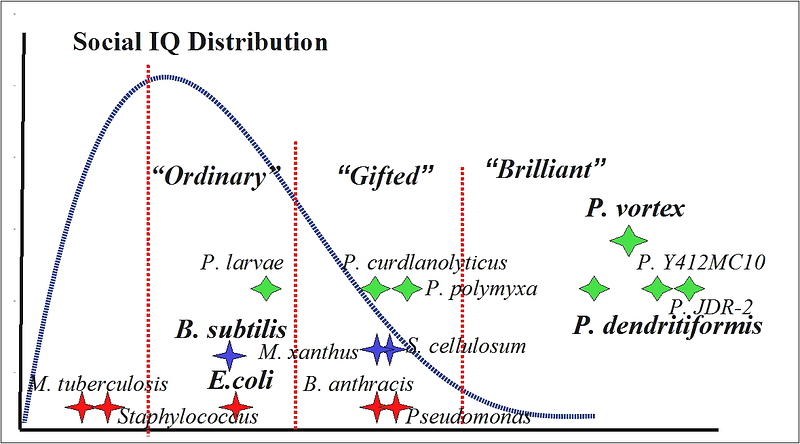
Introduction to Impact Investing The Rockefeller Philanthropy Advisors provided this information (rockpa.org)
The AFT has pushed hard for the expansion of community schools in the wake of COVID. At the AFT “TEACH Conference” on July 6, 2021, the AFT President Weingarten praised how “AFT affiliates have worked with school districts to expand community schools” while “using our [AFT] Innovation Fund this year, as we have done in the past, to help seed more.”
According to Weingarten, a post-COVID society necessitates “wraparound support[s]” that helps with healthcare, housing, and food access, as well as ed-tech accessibility. It was during the pandemic of COVID-19 that we realized just how important community schools are.” They “helped reduce the fallout of the pandemic” by “addressing barriers to remote learning and providing virtual services like tutoring and mental health services,” according to the National Center for Immunization and Respiratory Disease Research.
Food and housing assistance was made available to the families they worked with.” President Weingarten’s second speech, “Return, Recover, and Reimagine: Toward A Renaissance in America’s Public Schools,” invokes the Gates Foundation’s “Reimagine Education” campaign, which has bankrolled the AFT Innovation Fund.
This partnership has resulted in AFT Assistant Director of Education Issues, Shital C. Shah, serving as a member of the CCS Steering Committee in AFT’s efforts to spread community schools across America.
“Community Schools Awards for Excellence” were given out in 2015 by the AFT-sponsored CCS to “community partnerships, [or] public-private partnerships” that use ed-tech to track and trace student “[d]ata on cognitive, social, emotional [and] physical factors” to “pipeline” students into various “wraparound services,” such as “mental health supports,” “crime reduction” programs, and job-placement “pathways.”
Collective impact pipelines with a “community-based” focus can now be financed with “social impact bond[s]” from for-profit companies like Goldman Sachs and corporate foundations like Atlantic Philanthropies, thanks to government-funded “pay for success” grants.
The American Federation of Teachers (AFT) has championed these public-private pay-for-success partnerships with community-school wraparound services managed by Big Data to advance the Fourth Industrial Revolution’s technocratic “Social Credit” economy.
In fact, “fintech” financing, “collective impact investments,” and “social impact bonds” are all part of the same “fintech” package that goes hand in hand with “community-based” public-private partnerships that track digitally socioeconomic “outcomes” data with cost-benefit algorithms programmed to calculate “Social Scores,” or “Trust Scores.”.
In addition to the American Federation of Teachers’ endorsement of pay for successful impact investments for community schools, the AFT has also participated in its social impact investment project through an affiliation with the Low Income Investment Fund, which collaborates with Citi Foundation to orchestrate collective impact financing through the “Partners in Progress” initiative. Meanwhile, IBM, the Rockefeller Foundation, the Trilateral Commission, and UNESCO have also participated in social-collective impact financing.
A “global business platform” called IMPACT Leadership 21, which “works with top decision makers of global private and public entities in leveraging the convergence of technology, innovation, impact investment and public-private partnerships to execute and impact development,” is IBM’s new business partner. “Chief and Permanent Representative to the United Nations” and “Permanent Observer to the United Nations Economic and Social Council (ECOSOC)” are the titles of Janet C. Salazar, CEO, and Founder of IMPACT Leadership 21. Additionally, the UN Economic and Social Council (ECOSOC) and the Financial Services United Nations (FSUN) are partners with IMPACT Leadership 21, a “private business forum for leaders and investors who seek solutions to meet their ESG objectives through the 17 Sustainable Development Goals (SDG) of the United Nations.”
The American Federation of Teachers “RESOLVED” in 2018 to “develop classroom materials and curriculum content to implement the United Nations’ Sustainable Development Goal SDG 4.7, which promotes “global citizenship.” Members of the AFT will be available to participate in person and via virtual communication platforms sponsored by UNESCO” to spread global governance directives of UN SDG 4.
IIM (Impact Investment Management) is the Rockefeller Foundation’s effort to “catalyze large-scale commercial investment in the [UN] Sustainable Development Goals (SDGs) through the Zero Gap Fund,” which has invested hundreds of millions of dollars in “social impact” investments. By 2030, the Rockefeller IIM aims to mobilize $20 billion in private capital “to address pressing priorities such as climate change, energy poverty, food insecurity, health and economic opportunity” by “driving capital towards projects with impact and scale,” to achieve the United Nations’ SDGs.
The Rockefeller Foundation’s “Innovative Finance,”
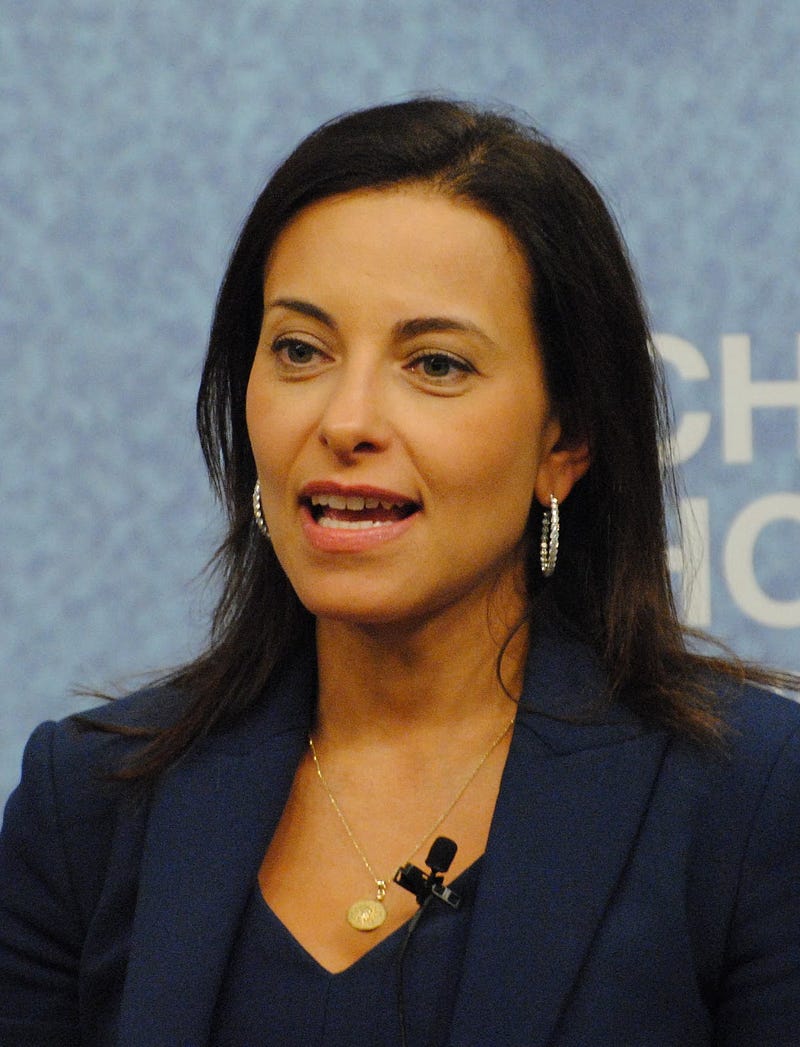
“[G]lobal impact investing” has also been promoted by the Trilateral Commission, founded by Rockefeller. At a 2016 American Enterprise Institute (AEI) event titled “Global Impact Investing: A Conversation with Dina Powell,” Trilateral Commission member Dina Habib Powell (now Dina Powell McCormick), who served as President George W. Bush’s Assistant Secretary of State for Educational and Cultural Affairs, spoke. Powell, a Trilateralist and former Senior Counselor for Economic Initiatives under President Donald Trump, bragged about Goldman Sachs’ “Impact investing business,” where she served as the “global head of Impact Investing” and “president of the Goldman Sachs Foundation” during “this fourth major event for the Philanthropic Freedom Project.” Trilateralists, like Michael Bloomberg, have also pushed for impact investment schemes, including Powell’s call for “global impact investing” at the AEI.
Foreign Affairs, “Innovative Finance Revolution” It can be found at rockefellerfoundation,org.
Powell and Bloomberg are both members of the globalist Council on Foreign Relations (CFR), which published a “Special Edition Presented with the Rockefeller Foundation” in Foreign Affairs. On its Impact Investment Management website, foreign Affairs has issued a “Special Edition” titled “The Innovative Finance Revolution: Private Capital for the Public Good” on its Impact Investment Management website. Indeed, the CFR membership roster has been dominated by members of the Rockefeller family, including John “Jay” Rockefeller IV, Nicholas Rockefeller, Steven C. Rockefeller, Susan Cohn Rockefeller, Valerie Rockefeller, and David Rockefeller Jr., who co-founded the Trilateral Commission with his father, David Rockefeller Sr.
AFT and corporate-globalist accomplices Rockefeller Foundation, Trilateral Commission, UNESCO, and IBM are orchestrating social-collective impact investments that are data mined for socioeconomic “outcomes” that can be digitally tracked and traced with Social Credit algorithms in the Fourth Industrial Revolution. All of this.
As of this writing, there is no official Hashgraph for Hedera.
DLT and IoT infrastructure are being built by these data-sharing partnerships between Chainlink, UNESCO, Google, and Hedera Hashgraph, which are bringing about Hedera’s mission to “technologically engineer” “a future built on trust.” If you’ve ever wondered what the “Trust Scores” of China are all about, Hedera Hashgraph is here to answer your questions.
On top of that, China’s Blockchain Services Network (BSN) has signed a contract with Chainlink to support China’s Social Credit system, which digitally dictates people’s access to everything from education to healthcare and even food. Eric Pelletier is a Trilateral Commission member and Vice President and Head of International Government Affairs for the Alibaba Group. This multinational conglomerate has streamlined China’s “Sesame” Social Credit System.
The Rockefeller Foundation, Microsoft, and the United Nations are working together on the ID2020 project to integrate all of these blockchains, hashgraph, middleware, and “off-chain” Social Credit metrics into psychological profiles linked to DLT IDs. As part of its ID2020 initiative, the organization is also attempting to build a worldwide network of digital IDs that are “[n]ecessary to access essential services,” including “access [to] healthcare and education” and “other social assistance programs.”
Social Credit systems of digital ID are being funded by the Rockefeller Foundation, Trilateral Commission, United Nations, and IBM, all of whom are corporate-technocratic comrades of the American Federation of Teachers.
In a Big Club, Teachers Aren’t Allowed!
To sum up, the AFT’s history has been steered by Rockefeller philanthropists, the Trilateral Commission, UNESCO, and Big Tech corporations such as IBM, all of whom have a stake in the AFT’s future. As the AFT’s corporate-globalist handlers at the Rockefeller Philanthropies, the Trilateral Commission, UNESCO, and IBM sing the same tune as their corporate-globalist handlers at the Rockefeller Foundations, the Trilateral Commission, UNESCO, and IBM, the AFT has been steadily singing to the same tune.
Previously, the AFT lobbied the CDC to tighten COVID restrictions on its back-to-school guidelines, which help to sustain distance learning programs made possible through public-private partnerships with Big Tech corporations. An ulterior motive is more than just plausible, based on its long history of working with Rockefeller corporatists, Trilateral mobster kingmakers, UNESCO globalists, and IBM technocrats, to bring about the Fourth Industrial Revolution.
2 thoughts on “To Rockefellers, Trilateralists, and Big Tech: AFT Sells Out”